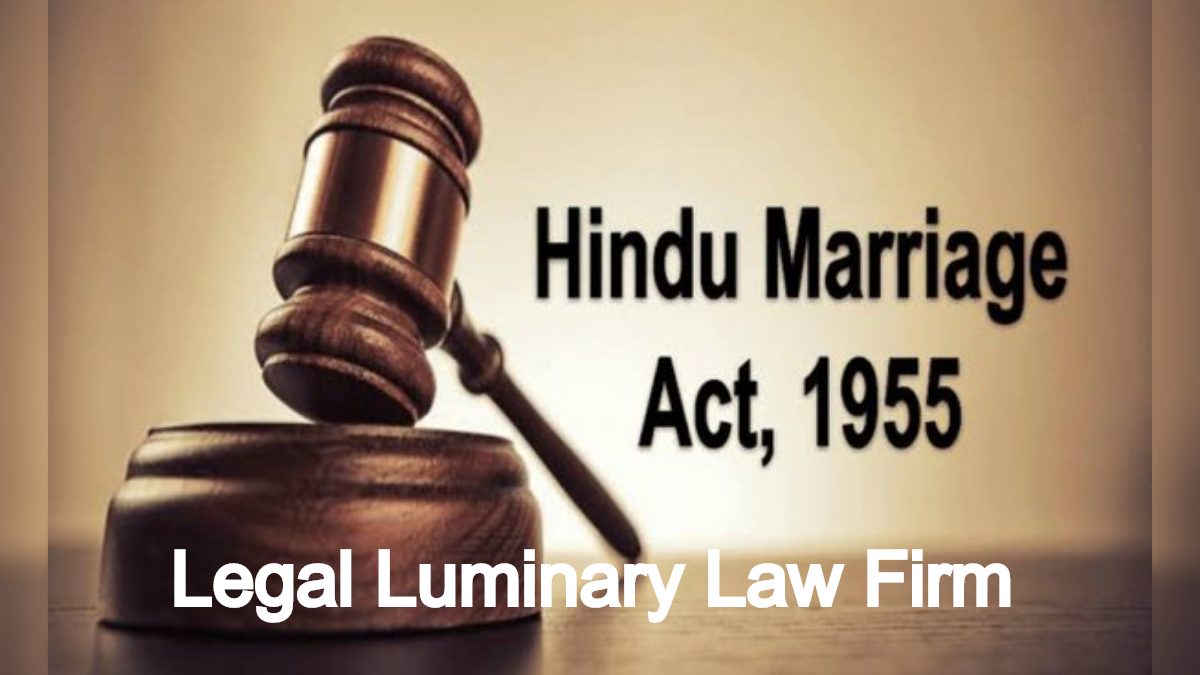Navigating Hindu Marriage Law? Understand Your Rights with the HMA
Matrimonial Matters Simplified: Insights into Hindu Marriage Act, 1955 - Legal Luminary Law Firm
The Hindu Marriage Act (HMA), 1955, serves as the cornerstone of matrimonial law for Hindus in India. It governs various aspects of marriage, including conditions for a valid marriage, grounds for divorce, and maintenance obligations. At Legal Luminary Law Firm, we understand navigating these legal intricacies can be overwhelming. This article aims to provide you with a simplified understanding of key provisions enshrined within the HMA, 1955.

Essential Conditions for a Valid Hindu Marriage:
The HMA outlines mandatory conditions that must be met for a Hindu marriage to be considered legal. These include:
- Monogamy: Both partners must be unmarried at the time of the ceremony.
- Age of Consent: The bride must be at least 18 years old, and the groom must be at least 21 years old.
- Sound Mind: Neither party can suffer from any mental illness that may impede their understanding of the marital vows.
- Religion: At least one partner must be Hindu, Buddhist, Jain, Sikh, or converted to one of these religions.
- Gotra (Clan) Exogamy: Couples belonging to the same patrilineal lineage (gotra) cannot marry.
- Free Consent: The marriage must take place with the free will and consent of both partners without any coercion or undue influence.
Grounds for Divorce Under the HMA:
The HMA also specifies various grounds under which a Hindu marriage can be dissolved through legal proceedings. These grounds include:
- Adultery: Engaging in sexual relations with someone other than the spouse.
- Cruelty: Physical or mental cruelty inflicted by one spouse on the other, making it impossible to live together.
- Desertion: One spouse abandoning the other without any reasonable cause for a continuous period.
- Conversion: One spouse converting to a religion not recognized under the HMA.
- Mental Illness: If one spouse suffers from a mental illness rendering them unfit for marital relations.
- Presumed Dead: If one spouse is missing (presumed dead) for a specific period as determined by the court.
- Failure to Consummate the Marriage: If the marriage has not been physically consummated due to impotency or any other reason.
Important Considerations:
- The HMA also outlines provisions for judicial separation, allowing couples to live separately while remaining legally married.
- The Act also addresses the concept of maintenance, whereby one spouse may be entitled to financial support from the other.
Read More
- Ensuring Authenticity: Navigating the Registration Act, 1908
- Unraveling Legal Evidence: Understanding the Indian Evidence Act, 1872
- Property Transactions Simplified: Exploring the Transfer of Property Act, 1882
- Criminal Justice Unveiled: Navigating the Code of Criminal Procedure (CrPC), 1973
- Timing Matters: Insights into the Limitation Act, 1963
- Department of Legal Affairs (DoLA):
Understanding the legalities surrounding Hindu marriage can be complex. If you are facing any matrimonial challenges, consulting with an experienced lawyer at Legal Luminary Law Firm is crucial. We can guide you through the legal process, protect your rights, and help you achieve a favorable outcome.
Disclaimer: This article provides a simplified overview of the Hindu Marriage Act and should not be construed as legal advice.